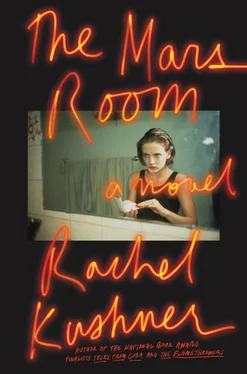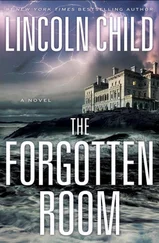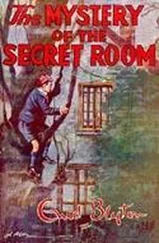“We got to her house, I was sure it was the place, but our grandmother didn’t live there anymore. The people in the house told us they moved in after she died. She’d died and we didn’t know. So there we were in Sunland, with no money, and no grandmother, nowhere to go. We slept in a park that night. The next day we started hitching. We ended up in Santa Barbara, and slept on the beach and dumpster dove for food. We snuck on Amtrak there, hid in the bathroom when the conductor came through, but then people were knocking so we risked it, took seats. My brother started to get sick. He was shitting his pants and vomiting on the train. He was ill and couldn’t control himself, and we didn’t have tickets. The conductor comes and says, you can’t stay on the train. So the train stops at the next station, and we were kicked off. My brother was a mess. He was burning up, lying on this train platform wherever we were, some town, and we were scared the police would get involved. They’d call our mother, and we would have to go back to her and that asshole she lived with.
“A man offered to help us. He promised not to call the cops. He took us to the Salvation Army. The people there, they put my little brother in a bed, with sheets and everything. They took care of him. They said he had dysentery and that he could have died. They let him rest and helped him get better. They gave us clean clothes. They fed me spaghetti and meatballs.
“There are some good people out there,” Conan said, “some really good people.”
When Doc was a teenager, President Richard Nixon performed on the Grand Ole Opry. Doc and his foster father, Vic, had watched it together on television. It was spring of 1974 and Nixon had already been disgraced, which burned up mean old Vic, who was loyal to the end.
President Nixon came out onstage at the big new theater in Nashville and greeted the people of Opryland, USA.
When the crowd died down, President Nixon said that country music was the heart of the American spirit. It was traditional music that praised simple values, love of family, love of God, and love of nation. Country music was patriotic and Christian, Nixon said.
“It started here, and it’s ours,” President Nixon told the Opryland audience. Those in TVland were listening, too, American boys with crew cuts and big ears, like Doc, who was seventeen, knob-limbed, horny, and depressed.
“It isn’t something that we learned from some other people or nation, it’s not something we borrowed or inherited from somebody else. Country music is as native as anything American you could ever find. It reflects values that are essential to our character, at a time when America needs character. Country music comes from the heart of America, and it is the heart of America. God bless the Grand Ole Opry,” Nixon said, “and God… bless… America!”
The Opryland crowd went wild.
Nixon sat down at the piano and pounded out “God Bless America” in an ugly style, his hands like mechanical levers slamming up and down. As he finished, Roy Acuff appeared, a yo-yo unspooling from his palm.
The big-eared boys in the theater audience, and those lying on rag rugs at home, all perked up to see Roy Acuff handle a yo-yo with such grace.
A jug band from Mississippi began to play. The singer, a barrel-chested baritone, launched into a song about a pulpwood hauler who demolished a roadside beer joint with a chain saw.
Why did he do it? The song explained why. The pulpwood hauler did it because the bartender called him a redneck and refused to serve him a cold beer. So he destroyed the place.
Next, to entertain President Nixon, who loved wholesome country music, came Tammy Wynette, who sang “D-I-V-O-R-C-E.”
Roy Acuff did “Wreck on the Highway.”
Charlie Louvin sang “Satan Is Real.”
Wilma Lee and Stoney Cooper performed “Tramp on the Street.”
Porter Wagoner chose a crowd pleaser with “Rubber Room.”
Loretta Lynn belted out “Don’t Come Home A-Drinkin’.”
“Let’s have a moment of silence to remember our beloved brother, banjo picker David ‘Stringbean’ Akeman,” Grandpa Jones told the audience. “Stringbean should have been here tonight. He was my best friend. My neighbor. My hunting buddy. And most importantly, a fellow member of the family here at the Opry. Four months ago, as many of you know, he was murdered, along with his wonderful wife, Estelle, by two lowlifes from down Dickerson Road. Let’s remember this simple man, with his long shirt, his short pants, and his love of old-fashioned mountain music.”
Nixon’s face turned to cold plastic as the room fell silent. He looked like a professional mourner, someone they’d brought in to set the dour and ceremonial temperament.
The mood lightened when Cousin Minnie Pearl came out and told the crowd that after the Secret Service body-searched her for this special occasion, she got in line to let them do it again. She told jokes about inbreeding and incest, and sang a song about being so jealous, she got a bulldog to watch her lover while he slept.
Del Reeves sang a number about a truck driver dreaming of what he’d like to do with a highway billboard’s almost naked girl.
Porter Wagoner performed “The First Mrs. Jones.” Mr. Jones, the man in the song, has killed his first wife and is warning the second Mrs. Jones that she’ll go the same way as the first if she leaves him.
There was a song about a moonshiner who outruns the police.
Another in which a man murders and buries his wife, but he can still hear her nagging all night long.
The Opryland audience erupted in riotous laughter.
Nixon sat stage left, jowly, regal and stiff, president of this great, great country, his overly long arms gripping the sides of his chair like a tractor’s stabilizer bars.
In his essay celebrating the wonder of wild apples, Thoreau concedes they only taste good out-of-doors. Even a saunterer, Thoreau says, would not tolerate a saunterer’s apple at a kitchen table. Their bitter flavor was best rationalized in the context of a beautiful autumn walk. Gordon Hauser walked whenever he could, up logging paths, through grazing meadows that were federal land and went on for miles. He found animal skulls, shotgun shells, an old landfill of antique bottles, some of them not even broken. On a cow trail above his cabin he came upon a paper wasp’s nest. It looked like a half-crushed helmet lying on the path. Gordon carried it inside and placed it on his table, this grand and mysterious, half-deflated, torn-open thing.
He often stayed out until dark, to watch the slow transition to night. He liked to regard the entire process from start to finish. As the last light disappeared, he heard screech owls. Great horned owls. Sometimes barn owls. On a May evening, Gordon found an owl on the ground, flapping its feathers and shuddering. Its head was as large as a tomcat’s, and furry. It made a clicking noise, and tried to back away from Gordon with its huge thorny feet. The eyes were human, with round pupils like a person’s. Eyelids like a person’s, too. It blinked and stared. He assumed the owl was injured, and that if he didn’t do something, it would be eaten by a predator. He went home and made calls. Gordon and his phone calls. That was the extent of his personal life now. Contacting bureaucracies. A county ranger told him it was probably a young owl dropped from the nest, normal for this time of year. They shake off baby feathers and take flight, she said. Gordon went back and it was gone. Once he thought he saw it, between trees at dusk. Could have been any owl, but it was harmless to want to think it was the fledgling.
After walking he’d fix dinner, a can of soup, the staple of his one-room life, and then he’d go online, where he had developed a bad habit, an addiction whose hooks had gone in painlessly and quick. He had started running their names, as the women would call that act. To run someone’s name was to have a contact on the outside google the person, or ask around.
Читать дальше








![О Генри - Меблированная комната [The Furnished Room]](/books/415396/o-genri-meblirovannaya-komnata-the-furnished-room-thumb.webp)
![О Генри - Комната на чердаке [The Skylight Room]](/books/415780/o-genri-komnata-na-cherdake-the-skylight-room-thumb.webp)


